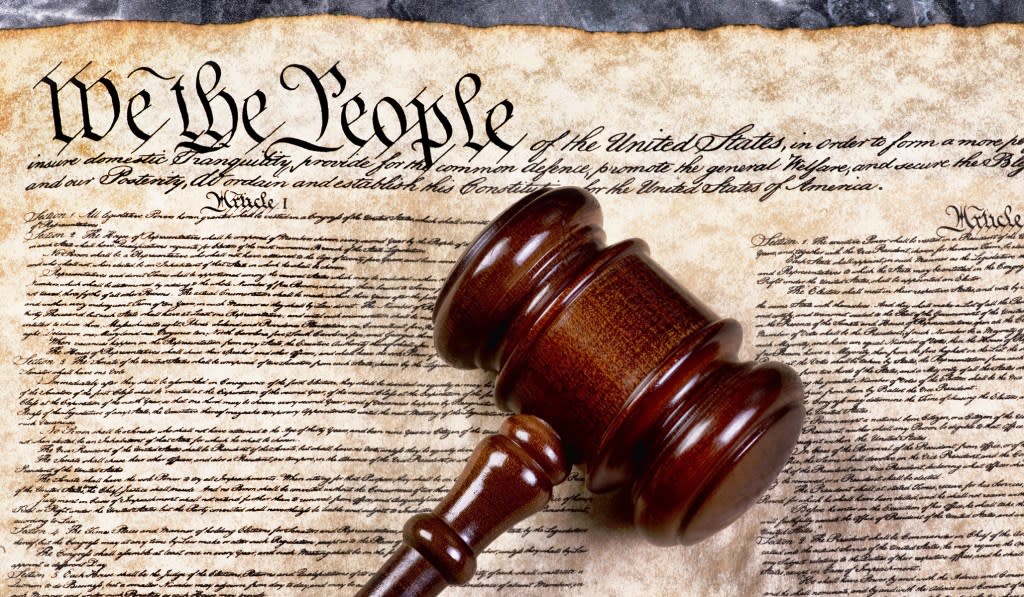After Bostock , We’re All Textualists Now

The question of whether Title VII of the Civil Rights Act of 1964 covers sexual orientation or gender identity was always a closer one than either side made it out to be. And after reading Justice Neil Gorsuch’s majority opinion, as well as the dissents by Justices Sam Alito and Brett Kavanaugh, respectively, I’m still scratching my head at who is right.
On the one hand, it’s patently absurd to suggest that anyone in the 1964 Congress thought the bill they were voting on included such protections. Homosexuality was considered a psychological disorder at the time — and homosexual activity still criminalized in many states — while transgenderism wasn’t even “a thing,” as the kids would put it. Indeed, when various versions of the Employment Non-Discrimination Act came up for congressional hearings in the late 2000s and early 2010s, progressive groups and Obama administration civil-rights officials spoke of the urgent need to update Title VII to protect vulnerable sexual minorities.
So it’s not bigoted reactionism to suggest that Title VII, as written, doesn’t contain so-called SOGI (sexual orientation/gender identity) protections.
On the other hand, the relevant statutory language refers to adverse employment actions taken “because of . . . sex.” “Sex,” as we know from many contexts, is a big, loaded word. Like Walt Whitman, it contains multitudes. One’s sexual orientation refers to whether someone is attracted to people of the same or opposite sex. Whether someone is transgender refers to whether the person thinks of himself, herself, or [insert pronoun here] as the sex “assigned at birth.” Lord knows that the people who draft statutory language don’t always have the precision of professional grammarians — and often leave purposeful ambiguities as a legislative compromise or to toss the tough line-drawing problems to the administrative state.
So it’s not relativistic Humpty-Dumpty-ism to suggest that Title VII, as written, already contains those same SOGI protections.
Instead, if we throw out both legislative-intent arguments and result-oriented ones based on the idea that the meaning of statutes changes with the times — living U.S. Code-ism? — what we’re left with is a case of statutory interpretation with no clear answer. That’s why my own Cato Institute — which filed briefs supporting constitutional rights for gay people in Lawrence v. Texas, United States v. Windsor, and Obergefell v. Hodges — sat out the three cases consolidated under the name Bostock v. Clayton County.
But regardless, it’s gratifying that all the justices seemed to agree with Justice Gorsuch’s mode of analysis: “When the express terms of a statute give us one answer and the extratextual considerations suggest another, it’s no contest. Only the written word is the law, and all persons are entitled to its benefit.” We’re all textualists now!
Where the disagreement came was in Gorsuch’s textualist analysis that “it is impossible to discriminate against a person for being homosexual or transgender without discriminating against that individual based on sex,” because an employer who fires someone for being gay or trans “fires that person for traits or actions it would not have questioned in members of a different sex.” My colleague Walter Olson has characterized this approach as “surprise plain meaning,” in that it would indeed surprise time travelers from the 1960s, but it’s based on the plain meaning of the relevant words found in 1960s dictionaries.
Of course, Justice Alito, in a dissent joined by Justice Thomas, counters that Gorsuch’s opinion is a “pirate ship” sailing under a false “textualist flag.” That’s because “neither ‘sexual orientation’ nor ‘gender identity’ is tied to either of the two biological sexes.” An employer can implement a “no-LGBTQ employees” policy “without paying any attention to or even knowing the biological sex” of applicants.
Moreover, Justice Kavanaugh points out, Gorsuch’s interpretation not only allows all those who would prefer SOGI protections codified into antidiscrimination law to do an end run around the separation of powers, it privileges a “literalist” statutory meaning over an “ordinary” one. Even if “sex” includes “sexual orientation, “the plaintiffs must also establish one of two other points . . . . [1] that courts, when interpreting a statute, adhere to literal meaning rather than ordinary meaning. Or alternatively, [2] that the ordinary meaning of ‘discriminate because of sex’ . . . encompasses sexual orientation discrimination.”
I rather think that Kavanaugh’s sophisticated analysis wins the day, but that’s because I read it last; I had previously been convinced by Gorsuch, and then Alito, until finally settling on the newest justice. Ask me tomorrow and I’ll surely have a different answer.
But regardless of who got the better of the lawyering, Bostock shows that those who group all the “conservative” justices together are missing the boat. Gorsuch and Kavanaugh are both committed textualists, and both were appointed not just by a Republican president but by the same one (Trump). Progressive critics who discount their independence or claim they’re just result-oriented reactionaries have egg on their face. And when they find a mirror in which to clean up, they should look deeper, because it’s actually the liberal justices who vote in lockstep.
As a policy matter, it certainly would’ve been better for Bostock’s result to have come through legislative rather than judicial action. As someone who doesn’t like adding evermore regulations onto struggling business owners — and this is all about small business, not the woke corporations that long ago changed their employment practices —I’m uncomfortable extending further intrusions into the freedom of contract. That’s particularly so in a fraught area where courts are ill-equipped when making such close statutory calls to also consider and write rules regarding religious exemptions, women’s sports, and other hard cases that a legislative body would’ve hashed out.
Over to you, Congress.

